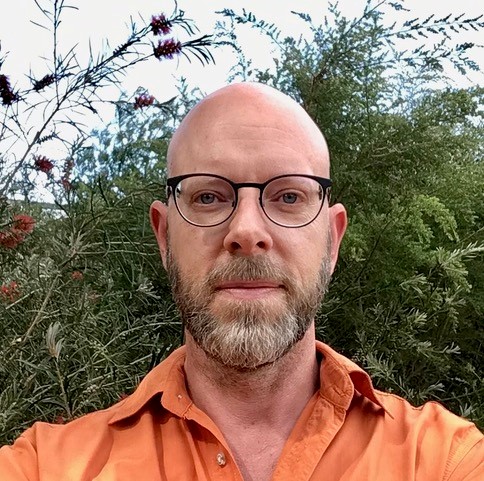Dr Steven Douglas
Dr Steven Douglas
Steve Douglas has primarily worked as a consultant ecologist to all sectors of government, and in the private and corporate sectors.
His PhD research was inspired by his graduating as a Yoga teacher, and discovering the global ‘greening’ of religion as a phenomenon of interest to academia and to the World Bank. In ‘meeting people where they are at’, some practitioners have sought to work with peoples’ faith traditions to achieve pro-environmental outcomes. He initially investigated Buddhism in this context, but found that it was relatively well investigated because it was widely seen as more inherently pro-environmental than some others. He then explored the ‘greening’ of Christianity in Australia though a case study of the three largest denominations. This included asking whether the ‘greening’ of theology and Church policies has resulted in a matching pro-environmental shift in values, attitudes and behaviours from individual to organisational scales. His thesis was passed unamended, and he received a publication fellowship to disseminate his research.
He later worked for the United Theological Library and for Monash University in the field of religion and environmentalism in Australia, and developed the Forum On Religion & Ecology website for Monash, based on the equivalent at Yale.
Steve has an interest in whether the ‘greening’ of religions more broadly has influenced or could influence Australian farmers to adopt more pro-environmental behaviours. Farmers identify as religious at a higher rate than do other Australians.
Qualifications:
1993 BSc. Macquarie University
1996 MEnvPlan. Graduate School of Environment, Macquarie University
2007 PhD. Fenner School of Environment & Society, Australian National University
Honours & Awards: 2008 Doctoral Publication Fellowship, ANU
Selected Publications:
Beringer, A. and Douglas, S.M. 2013. “On the ethics of international religious/spiritual gatherings and academic conferencing in the era of global warming: A case study of the Parliament of World Religions Melbourne 2009 – Part 2”. Worldviews, 17(3), pp187-204, (on-line edition published 2011)DOI 10.1163/156853511X575639 https://brill.com/view/journals/wo/17/3/article-p187_1.xml
Beringer, A. and Douglas, S.M. 2012. “On the ethics of international religious/spiritual gatherings and academic conferencing in the era of global warming: A case study of the Parliament of World Religions Melbourne 2009 – Part 1”. Worldviews, 16(2), pp179-195, (on-line edition published 2011)DOI 10.1163/156853511X575620 https://brill.com/view/journals/wo/16/2/article-p179_4.xml
Douglas, S.M. 2010. “Teaching & Learning Guide for: Religious environmentalism in the West.” Religion Compass, 4(5) pp 334-339 http://onlinelibrary.wiley.com/doi/10.1111/j.1749-8171.2010.00213.x/abstract
Douglas, S.M. 2009. “Religious environmentalism in the West II: impediments to the praxis of Christian environmentalism in Australia”. Religion Compass, 3(4) pp 738-751 http://onlinelibrary.wiley.com/doi/10.1111/j.1749-8171.2009.00162.x/abstract
Douglas, S.M. 2009. “Religious environmentalism in the West I: a focus on Christianity”. Religion Compass, 3(4) pp 717-737 http://onlinelibrary.wiley.com/doi/10.1111/j.1749-8171.2009.00161.x/abstract
Douglas, S.M. 2006. “Follow-up to biodiversity conservation on Church-owned land.” Australasian Plant Conservation, 15(1), p16-17.
Douglas, S.M. 2006. “The scope for collaborative biodiversity conservation on Church-owned land”. Australasian Plant Conservation, 14(3), p23-25.
Douglas, S.M. & Pepper, M. 2009. “Is 'green' religion the answer to the ecological crisis? A reflection in the context of the English-speaking West” in Banik, S.D. and Basu S.K. (Eds.), Environmental challenges of the 21st Century. APH Publishing Company, New Delhi, pp212-240.
Douglas, S.M. 2015. “Mother Nature” in Encyclopaedia of Sexuality & Gender Studies. Wiley-Blackwell.

 Religion and Society
Religion and Society

